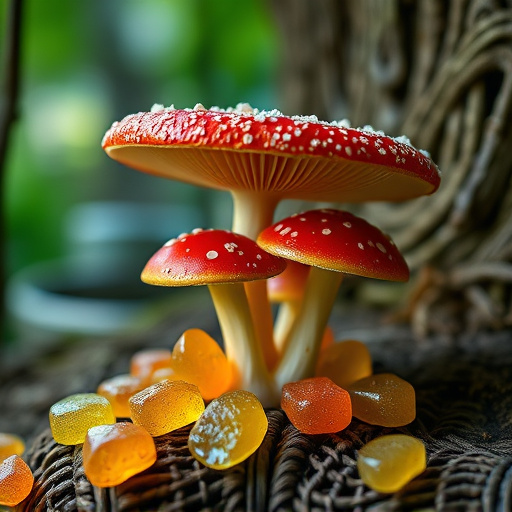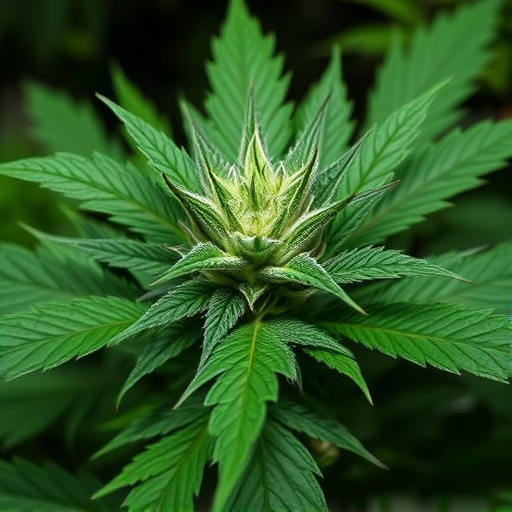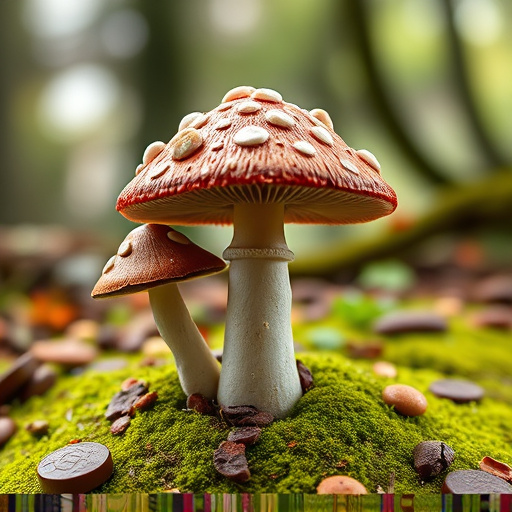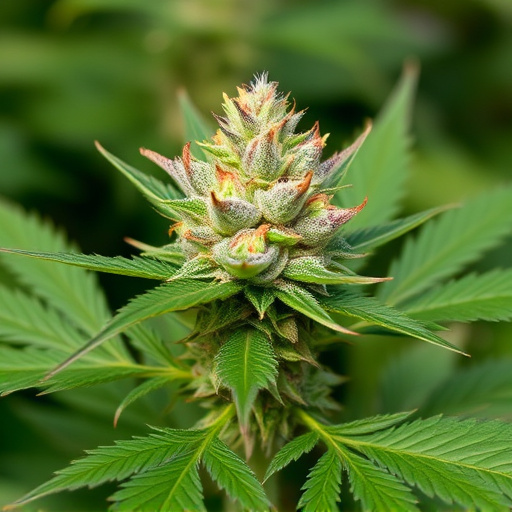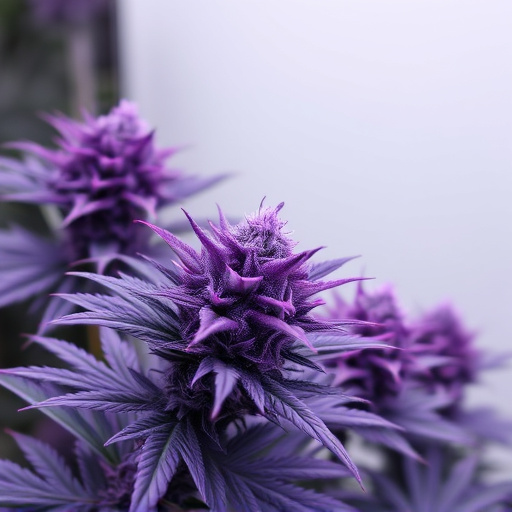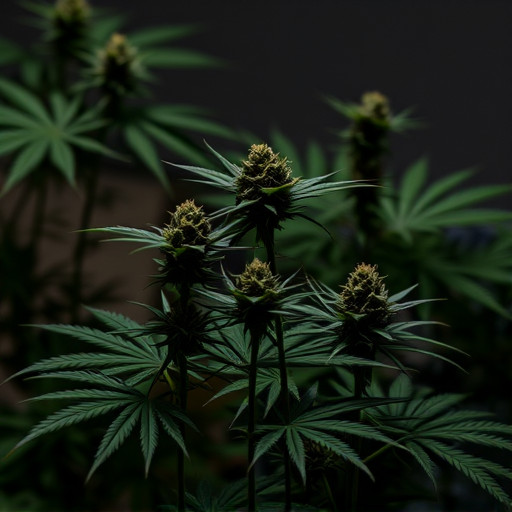THC in cannabis interacts with the body's endocannabinoid system to regulate appetite, offering potential benefits for insomnia management through various strain types. High-CBD, low-THC strains promote sleep without psychoactive effects, while THC-rich strains can stimulate appetite. Tailored cannabis solutions exist for insomnia and hunger control, with terpenes enhancing sleep quality in certain varieties.
“Unraveling the intricate relationship between THC (tetrahydrocannabinol) and hunger hormones can offer insights into managing sleep-related eating disorders. This article explores how THC interacts with our body’s natural appetite regulators, shedding light on its potential effects on insomnia and elevated appetite.
We delve into the world of cannabis strains specifically tailored for insomnia relief, providing a holistic approach to better sleep and controlled hunger. Additionally, we uncover natural alternatives to achieve peaceful slumber and curb cravings.”
- Understanding THC and Its Interaction with Hunger Hormones
- The Role of Cannabis Strains in Managing Insomnia and Appetite
- Exploring Natural Alternatives for Sleep and Hunger Control
Understanding THC and Its Interaction with Hunger Hormones

THC, or Tetrahydrocannabinol, is a primary active compound found in cannabis plants known for its psychological effects and interaction with the endocannabinoid system (ECS) within our bodies. This system plays a significant role in regulating various physiological processes, including appetite and hunger. When THC binds to specific receptors in the ECS, it can influence hunger hormones, leading to potential changes in eating behaviors.
Research suggests that THC’s impact on hunger hormones is complex. It can stimulate the release of ghrelin, often referred to as the ‘hunger hormone,’ which increases appetite and food intake. This effect might be particularly noticeable for individuals with insomnia who turn to cannabis strains known for their sedative properties, as it could further disrupt sleep-related eating patterns. Conversely, THC may also suppress the activity of another hormone, leptin, responsible for signaling satiety and reducing hunger. Understanding these interactions is crucial in fields like medicine and research, especially when exploring cannabis strains for insomnia and other conditions while considering their potential effects on appetite regulation.
The Role of Cannabis Strains in Managing Insomnia and Appetite

Cannabis has long been recognized for its potential to alleviate various symptoms, including those associated with sleep disturbances and appetite issues. The role of specific cannabis strains in managing insomnia and regulating appetite is a growing area of interest among researchers. Different strains offer unique combinations of cannabinoids, such as THC (tetrahydrocannabinol) and CBD (cannabidiol), which can interact with the body’s endocannabinoid system to produce therapeutic effects.
For individuals struggling with insomnia, certain cannabis strains known for their high CBD content have shown promise in promoting sleep. While THC is often associated with psychoactive effects that might disrupt sleep, CBD works differently by binding to specific receptors involved in regulating sleep-wake cycles and reducing anxiety, making it a popular choice for those seeking relief from insomnia without the mental cloudiness often linked to THC. Additionally, strains rich in THC can stimulate appetite, which may be beneficial for patients undergoing treatment for conditions causing anorexia or cachexia.
Exploring Natural Alternatives for Sleep and Hunger Control
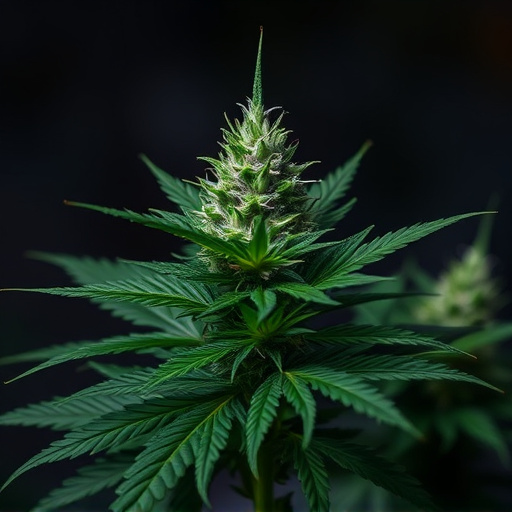
Many people turn to cannabis as a natural remedy for various ailments, including insomnia and hunger control. While THC is known for its psychoactive effects, it also interacts with the body’s endocannabinoid system, which plays a significant role in regulating sleep and appetite. Exploring natural alternatives through specific cannabis strains can offer a more targeted approach.
Cannabis strains high in CBD (cannabidiol) are often recommended for insomnia as they promote relaxation without the mind-altering effects of THC. These strains can help alleviate stress and anxiety, making it easier to fall asleep. Additionally, some cannabis varieties contain terpenes, natural compounds known for their aromatic properties, that further enhance sleep quality. As for hunger control, certain strains with a balance of THC and CBD may suppress appetite without causing drowsiness, offering a potential solution for those seeking to manage hunger naturally.
THC’s impact on hunger hormones offers a potential natural approach to managing appetite, particularly for those suffering from insomnia. While further research is needed, understanding how different cannabis strains can influence sleep and hunger provides valuable insights into alternative treatments. Exploring natural alternatives like specific cannabis strains for insomnia alongside traditional methods may offer a holistic solution for improving sleep quality and regulating appetite.
